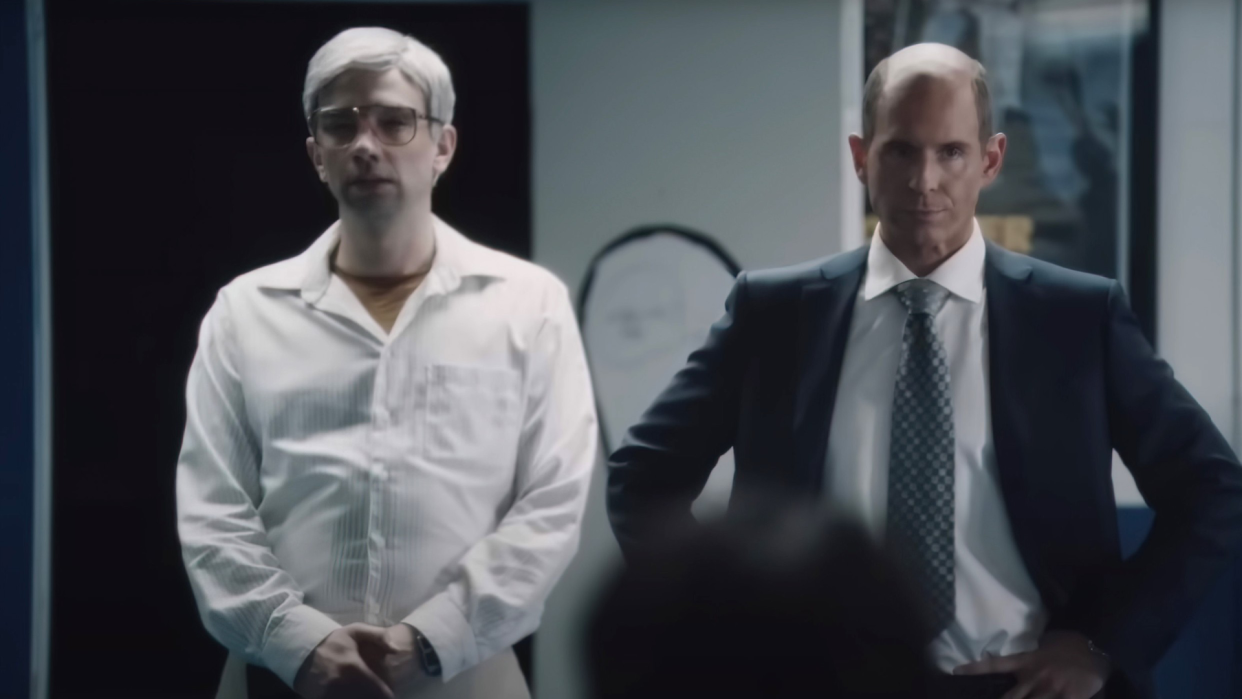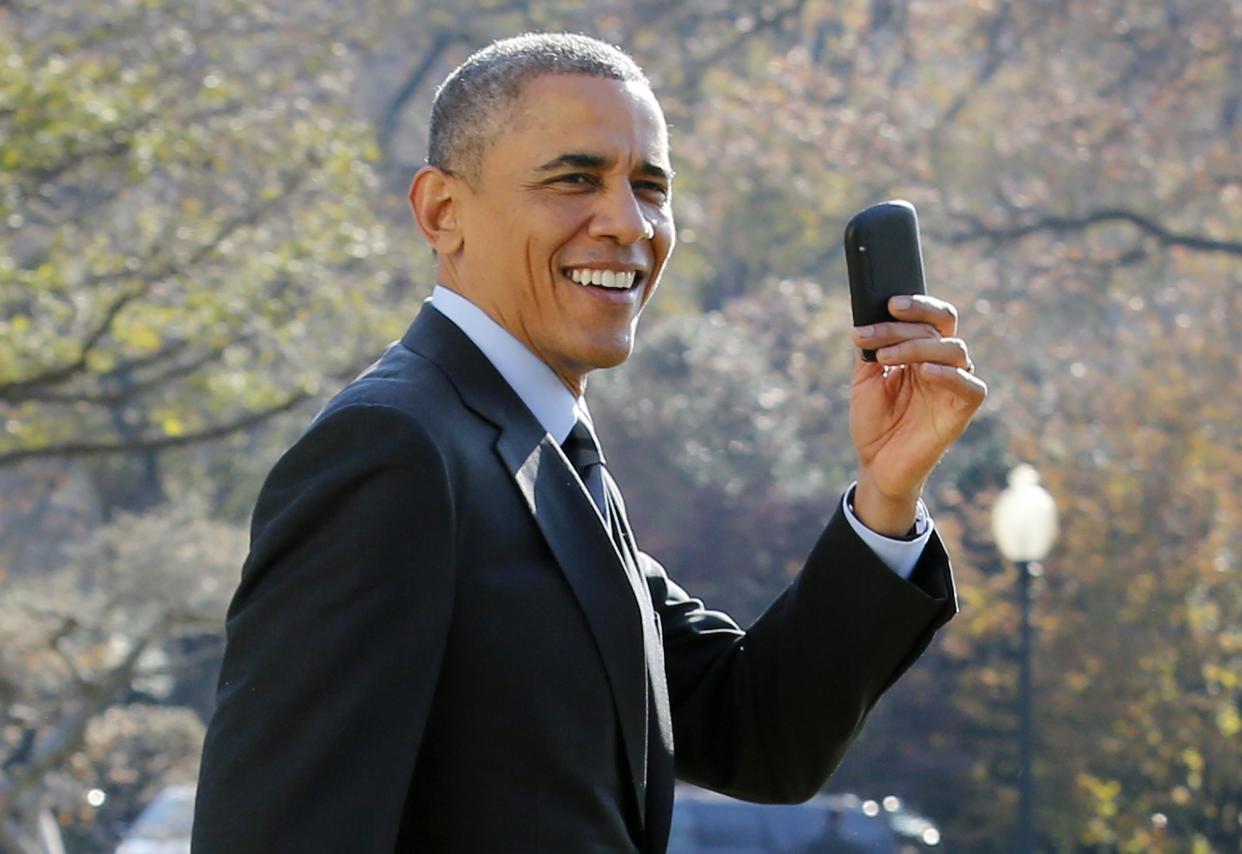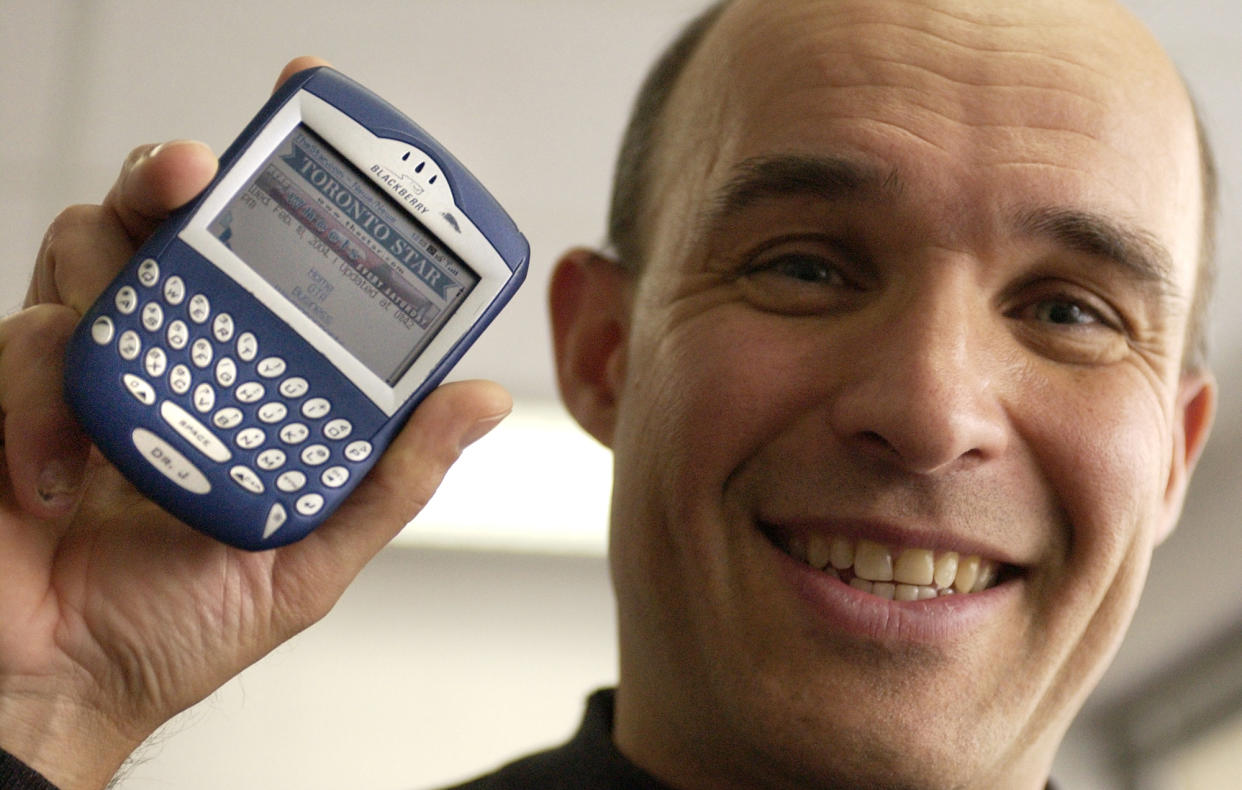'BlackBerry' reveals the rise and fall of Barack Obama's favorite smartphone

During its heyday, the BlackBerry didn't just revolutionize the smartphone market — it also changed the U.S. presidency. When President-elect Barack Obama prepared to enter the Oval Office in 2009 after trouncing John McCain and Sarah Palin in the 2008 election, he made it clear that he'd be bringing his trusty BlackBerry with him.
The Illinois senator's smartphone addiction — there's a reason the BlackBerry's nickname was the "CrackBerry" — was well-known from his time on the campaign trail, but at that time both the National Security Agency and the Secret Service still advised incoming presidents to surrender personal communication devices and curtail private e-mail use due to personal safety and national security concerns.
Obama became the first president to push back against that policy, even telling the press, "I'm still clinging to my BlackBerry. They're going to have to pry it out of my hands." It was a battle he ended up winning: Days after his inauguration, President Obama was granted the ability to bring his BlackBerry to the White House — a change in smartphone policy that's been followed by his Oval Office successors, Donald Trump (who raised his own security concerns by reportedly using an unsecured cell phone) and President Joe Biden.

That's a part of the BlackBerry story you won't learn much about in BlackBerry, writer-director Matt Johnson's new dramatization of the pioneering smartphone's rise and fall. According to star Jay Baruchel — who plays the device's inventor, Mike Lazaridis — that's because the film pointedly skips over the peak of BlackBerry's popularity in favor of depicting how the phone's makers "flew a little too close to the sun."
"There might be a fleeting mention of [Obama] in a montage, but nothing of any importance really," the actor says when asked if the Canadian-made device's impact on U.S. politics was referenced more extensively in early versions of the script. It was an example of how global and how famous this s*** became. But there was nothing big about it in the movie: the movie that's out is pretty close to the movie Matt wrote."
As with any dramatization of a true story, BlackBerry condenses events and invents situations to move the narrative along. That means Johnson could theoretically have written a scene where Baruchel's co-star, Glenn Howerton — who has been winning rave reviews for his hard-charging portrayal of former BlackBerry CEO, Jim Balsillie — visited the White House for a private audience with Obama. And Howerton says he would have enjoyed playing that kind of fictionalized encounter between the Canadian businessman and the American president.
"It would've been really interesting, because we'd get to see Jim at his most charming," muses the It's Always Sunny in Philadelphia star. "There's a couple of glimpses of it in the film, certainly, but I don't think you can succeed on that level that Jim did if you don't have a certain degree of charm in the right situations. And Jim is like that in real life! I met him a few weeks ago at the Toronto premiere of BlackBerry and he's a pleasant, disarming and charismatic human."

The Balsillie seen in Johnson's film more closely resembles Gordon Gekko — Michael Douglas's breakout character from Oliver Stone's 1987 drama, Wall Street. Both come across as examples of rapacious capitalism incarnate, although Howerton says that Balsillie's personal motto would be closer to "Competition is good" instead of "Greed is good."
"For Jim, it was less about greed than competitiveness," the actor notes. "He attacked the business world the same way that a pro tennis player attacks tennis. Whenever I meet someone who plays a game like basketball or tennis as a profession, I'm always struck by how seriously they take it. You almost wonder, 'Is this fun for you on any level? Because it certainly doesn't seem like it.' But I think it is: I think the real fun for somebody who is as competitive as Jim is winning. Most people are like, 'It's just fun to play.' And Jim's like, 'F*** that — I want to win."
As depicted in the film, Lazaridis has the exact opposite personality — almost pathologically insular and intensely conflict-avoidant. Baruchel compares him to an artist like the late Kurt Cobain: someone who has distilled his focus to only a few things. "As expressed in our script, Mike lives in a world with a very clear value system and without nuance. That's what makes his downfall dramatic; he's somebody that is dysfunctional in most applications, but is absolutely the best in this one specific area."

BlackBerry's crash and burn is credited in the film to several different factors, including the launch of the iPhone and financial malfeasance on Balsillie's part. But there's still plenty of nostalgia attached to the brand, placing BlackBerry in the realm of recent movies like Ben Affleck's Air and Taron Egerton's Tetris, which dramatize the origin stories behind major corporate products. That's an emerging genre that makes Baruchel, at least, a little uncomfortable.
"Historically, I haven't been a big fan of movies that end up expecting the audience to root for corporate growth," the How to Train Your Dragon star says, adding that he hasn't seen Air or Tetris. "That's never why I went to movies — to root for a corporation to make a bunch of money! The fact that we skip over the apex makes this more interesting. It's like how, for me, the most interesting superhero movies are the origin stories and then something like Avengers: Endgame where you see the demise of it all. Everyone knows the part in the middle."
Of course, the recent fascination with brand-centric movies also reflects the way that brands themselves have become celebrities — and celebrities have become brands — in recent years. It's a development that Howerton has certainly noticed. "The brand is actually overtaking celebrity itself," he says. "There's the reality of the person, and then the part of the person that other people can project themselves onto. And with products, the BlackBerry is a perfect example of that. It's a product that people became obsessed with and it became a massive celebrity in its day."
Naturally, there are still some limits to brand worship. "I don't know how many candlelight vigils there will be around [BlackBerries] when they finally pass away," Howerton jokes. "Not that there shouldn't be!"
BlackBerry is playing in theaters now.
